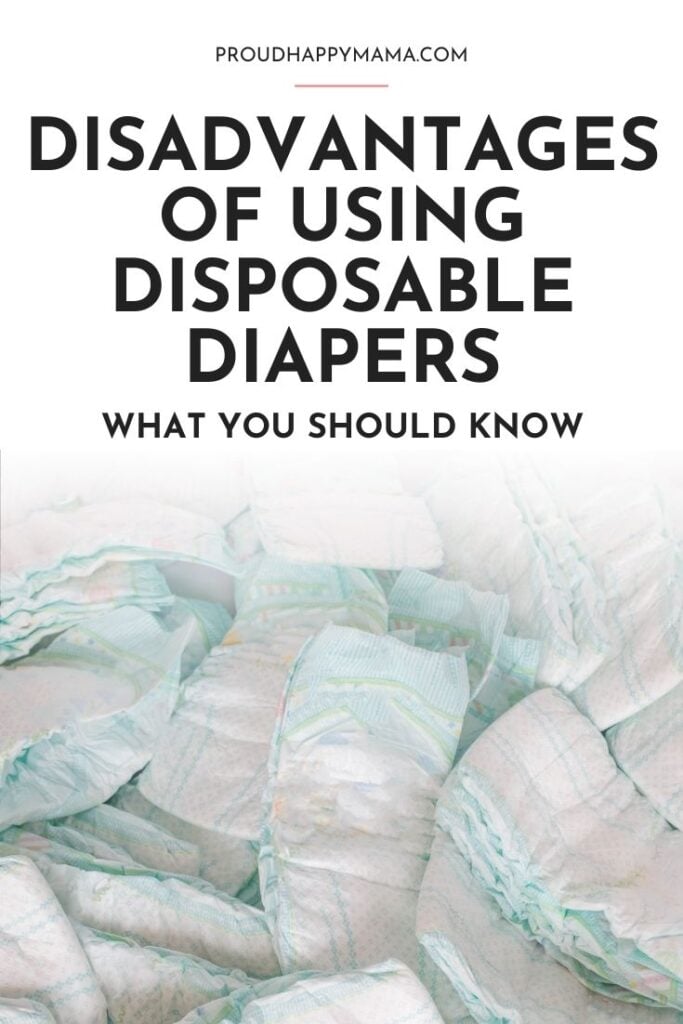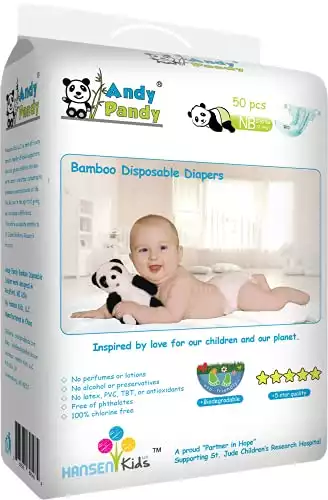Disadvantages Of Using Disposable Diapers
Disposable diapers are a modern convenience that has revolutionized the way we diaper our babies. Yet, they may not be as wonderful as you may think.
In fact, there are many disadvantages of using disposable diapers for babies that need to be considered when choosing the right diapering method for you and your baby.
From nasty diaper rashes to burning a hole in your wallet, knowing the disadvantages of disposable diapers may lead you to choose a disposable diaper alternative.
That’s why we put together this guide on the cons of disposable diapers, so you can decide if the advantages of disposable diapers outweigh the disadvantages.
And if you love this guide on disposable diaper disadvantages, then check out our guides on diaper free time, types of cloth diapers, and best organic disposable diapers.
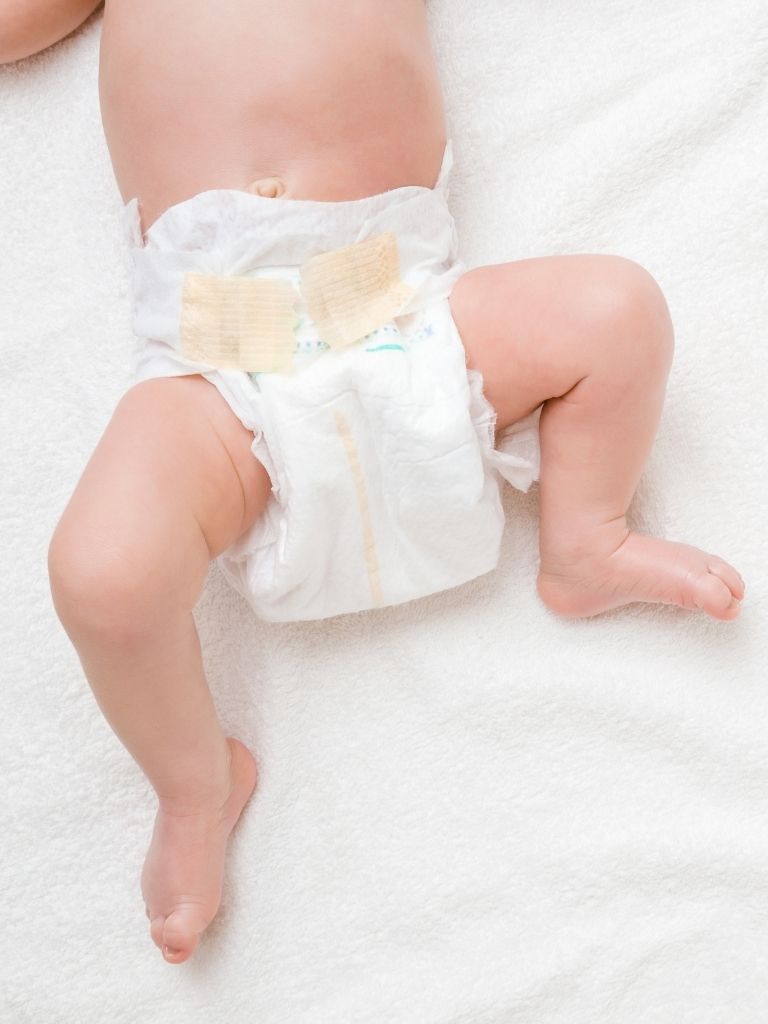
What Are The Disadvantages Of Using Disposable Diapers For Babies?
When looking at the disadvantages of diapers, specifically disposable diapers, it is important to note that not all babies will be impacted in the same way and not all disposable diapers will have the same disadvantages.
Disadvantages of Disposable Diapers
1. Disposable Diapers Are Expensive
Most children won’t start potty training until 18months old and won’t be fully potty trained until the time they are 3 years old. And that is just for daytime potty training.
That means parents will be buying disposable diapers for at least two to three years or even longer.
In fact, the average child will use about 7,000 diapers in their lifetime.
And with a disposable diaper costing upwards of $0.14 a piece, on the cheap side of things, that means parents will need to fork out at least $980 in diapers per child!
Let’s not forget too, that is for the cheapest diapers, some disposable diapers cost upwards of $0.50 per diaper which could see you out of pocket around $3,500 per child.
There’s also the hidden cost of using disposable wipes that often gets overlooked too!
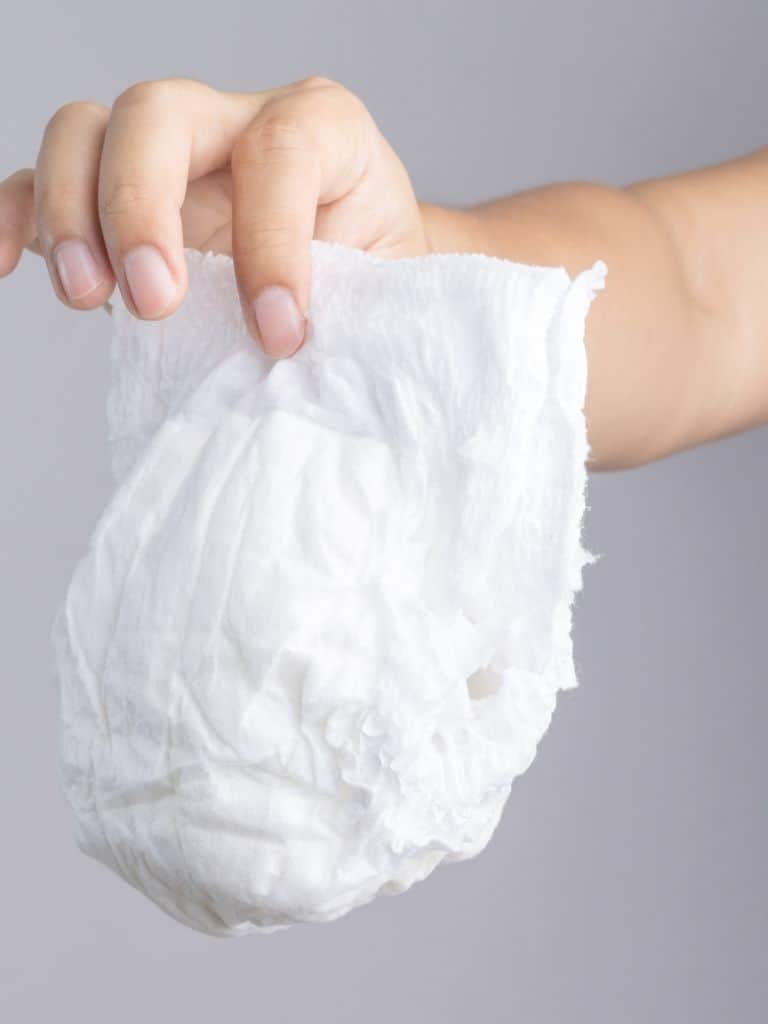
2. Disposable Diapers Negatively Impact The Environment
Conventional disposable diapers have two major environmental impacts.
Firstly, they are made using plastics. As they cannot be reused or composted that means they end up in landfills around the world. It has been estimated that disposable diapers can take between 200 and 500 years to decompose.
Secondly, diaper companies are not required to disclose the chemicals used in making their diapers. This means we don’t actually know what is leaching into the soil and groundwater as the billions of disposable diapers fill our landfills.
3. Disposable Diapers May Lead To Allergic Reactions
Babies have delicate and sensitive skin. And as we just highlighted, diaper companies are not required to disclose the chemicals used in making their diapers.
These chemicals can be found in fragrances, dyes, synthetic fibres, adhesive tabs, and the absorbent pulp used in disposable diapers.
But unless a company specifies exactly what chemicals are in their diapers, you will not know.
And when they come into contact with your baby’s skin, they may cause an allergic reaction.
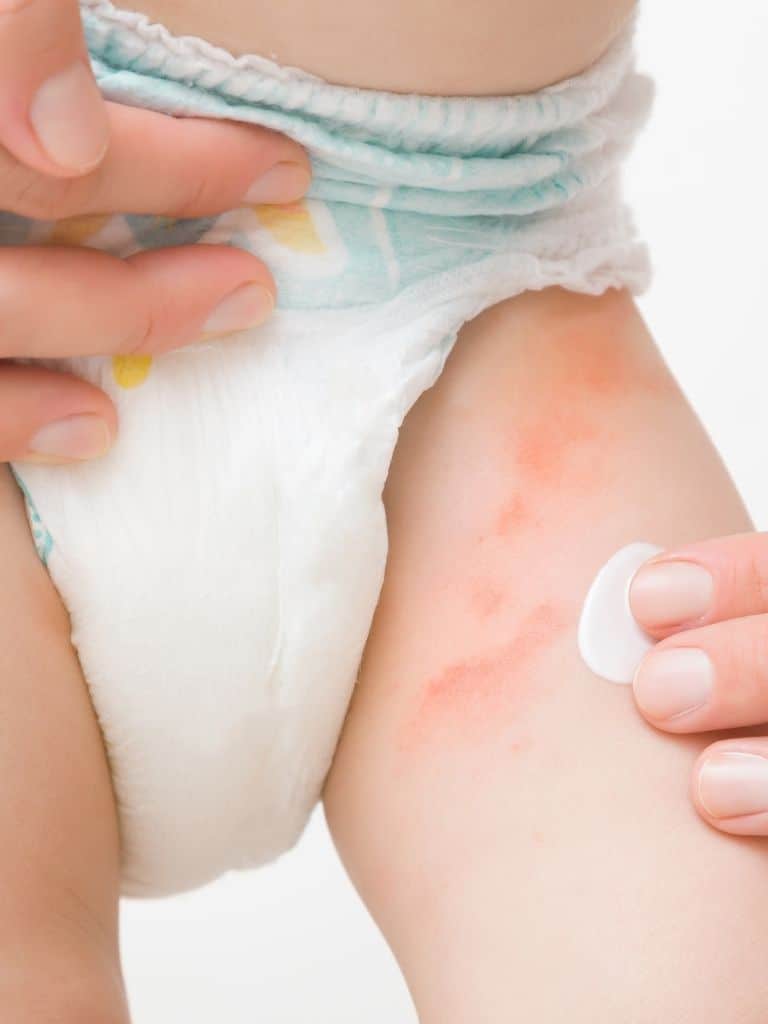
4. Disposable Diapers May Lead To Skin Rashes
Diaper rashes happen. You can apply diaper cream to help prevent them, yet you may find that they occur more when using disposable diapers.
When you use a cloth diaper, you need to change the diaper when it gets wet. Unlike a disposable diaper that may be left on for several hours even when wet.
That leads to a wet, moist environment in the diaper that is perfect for breeding bacteria, which is one of the main culprits of skin rashes.
5. Disposable Diapers May Lead To Difficulty In Potty Training
There are main two reasons why disposable diapers may lead to difficulty in potty training.
Firstly, understanding that you are wet is one of the key steps in potty training. Yet, disposable diapers are very effective in absorbing urine which may hinder your child’s awareness.
Secondly, kids get used to peeing and pooping in a disposable diaper. They can go anywhere at any time. But potty training, that takes effort on their behalf. So, they may be less enthused to start especially when they have the convenience of a disposable diaper.
What Are The Alternatives To Disposable Diapers?
So, you have read through the above disposable diaper disadvantages and decided that you want to look at alternatives.
The good news is there are several disposable diaper alternatives that you can choose from for your baby. These include:
- Use cloth diapers
- Use organic disposable diapers
- Use a combination of both cloth diapers and disposable diapers
- Practice Elimination Communication (EC)
Andy Pandy diapers have a 100% Non-woven bamboo fiber back sheet and are guaranteed 100% Chlorine free, no alcohol or preservatives, free of Phthalates, latex, PVC, TBT, or Antioxidants. This means no nasty chemicals are going to directly in contact with your baby’s skin.
Other reasons they are our top pick include:
- Naturally hypoallergenic, antimicrobial and odor resistant
- 100% free of corn, wheat and starch
- Wetness indicator
- And let’s not forget - they’re 86% biodegradable
Common Questions You May Have About The Cons Of Diapers
You should not use disposable diapers if your baby experiences a negative impact from them such as an allergic reaction or ongoing rashes. Instead, you may opt to use cloth diapers or organic disposable diapers that are free from chemicals, fragrances, dyes, and parabens.
You may be wondering if it is OK to keep a baby in diapers all the time? You can, but it is not advisable as it may lead to rashes and skin irritation. Instead, try giving your baby at least 10 minutes a day diaper free time.
‘What are the safest diapers for babies?’ I hear you ask? Our preferred choice is Andy Pandy Bamboo Diapers. They are an organic disposable diaper brand that is guaranteed 100% Chlorine free, no alcohol or preservatives, free of Phthalates, latex, PVC, TBT, or Antioxidants.
Final Thoughts On The Disadvantage Of Disposable Diapers
This guide is here to help educate parents on the disadvantages of disposable diapers and provide alternative diaper options. But, as with most things in life, there are pros and cons to using disposable diapers. So, whether you choose to use disposable diapers or not is a personal choice that only you and your family can make.
And if you’re looking for more great diapering guides, then check out these guides on best inserts for cloth diapers, best washing machines for cloth diapers, best detergents for cloth diapers, and diaper buying guide.
